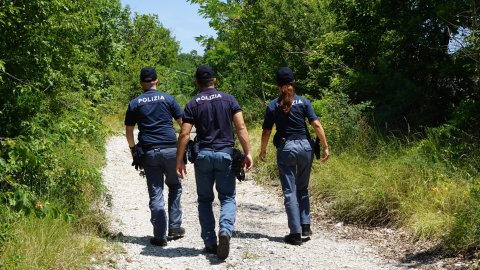Understanding the Turkish Migrant Smuggling Operation on the Balkan Route
The issue of migrant smuggling has become a pressing concern across Europe, particularly along the Balkan route. This route, which has been a primary pathway for migrants seeking to reach Western Europe, has seen a surge in illegal activities, including human trafficking and smuggling operations. In a recent development, law enforcement authorities have made significant strides in combating these illegal networks, leading to the arrest of alleged members of a Turkish migrant smuggling gang.
The Context of the Balkan Route
The Balkan route has been a critical passage for thousands of migrants fleeing conflict, poverty, and persecution in their home countries. The journey is fraught with danger, and many migrants find themselves at the mercy of unscrupulous smugglers who exploit their desperation for profit.
Key factors driving the use of the Balkan route include:
As the number of migrants using this route continues to rise, so does the prevalence of organized crime syndicates that facilitate their passage, often at great risk to their safety.
The Arrest of the Turkish Smuggling Gang
Authorities recently launched a coordinated operation across multiple countries that resulted in the arrest of several individuals suspected of being part of a Turkish migrant smuggling gang. This operation highlights the ongoing efforts by law enforcement to dismantle networks that profit from human suffering.
Key details of the operation include:
These arrests serve as a reminder of the challenges that law enforcement faces in combating human trafficking and smuggling networks. Smugglers often adapt quickly to law enforcement tactics, making it vital for authorities to remain vigilant and proactive.
The Impact on Migrants
For many migrants, the decision to rely on smugglers is not taken lightly. The journey is perilous, and the costs can be exorbitant. Many migrants find themselves in vulnerable situations, facing not only the risks associated with the journey but also the threat of exploitation by smugglers.
Some of the common risks faced by migrants include:
The recent arrests may provide a sense of relief for some migrants, but the reality remains that many will continue to seek out smugglers as they pursue their dreams of safety and a better life.
Challenges in Combating Smuggling Networks
While the arrests of individuals involved in migrant smuggling are a positive step, the fight against these networks is far from over. Several challenges persist, complicating efforts to eradicate smuggling operations along the Balkan route.
Some of the main challenges include:
Addressing these challenges requires a multifaceted approach that includes not only law enforcement but also international cooperation, community engagement, and support for migrants.
The Role of International Cooperation
The fight against migrant smuggling is not one that can be won by individual countries alone. It requires a concerted effort from governments, international organizations, and non-governmental organizations (NGOs) working together to tackle the root causes of migration and to disrupt smuggling networks.
International cooperation can take several forms, including:
Such collaboration is essential for creating a more effective response to the complex issue of migrant smuggling.
Conclusion
The arrest of the Turkish migrant smuggling gang on the Balkan route is a significant development in the ongoing battle against human trafficking and smuggling networks. While these arrests highlight the commitment of law enforcement to combat these crimes, the challenges remain immense.
As the situation evolves, it is crucial for all stakeholders—governments, NGOs, and communities—to work together to address the underlying issues driving migration and to create safer pathways for those seeking refuge. The journey of many migrants will continue to be perilous, but with concerted efforts, there is hope for a future where human dignity is protected and respected.










